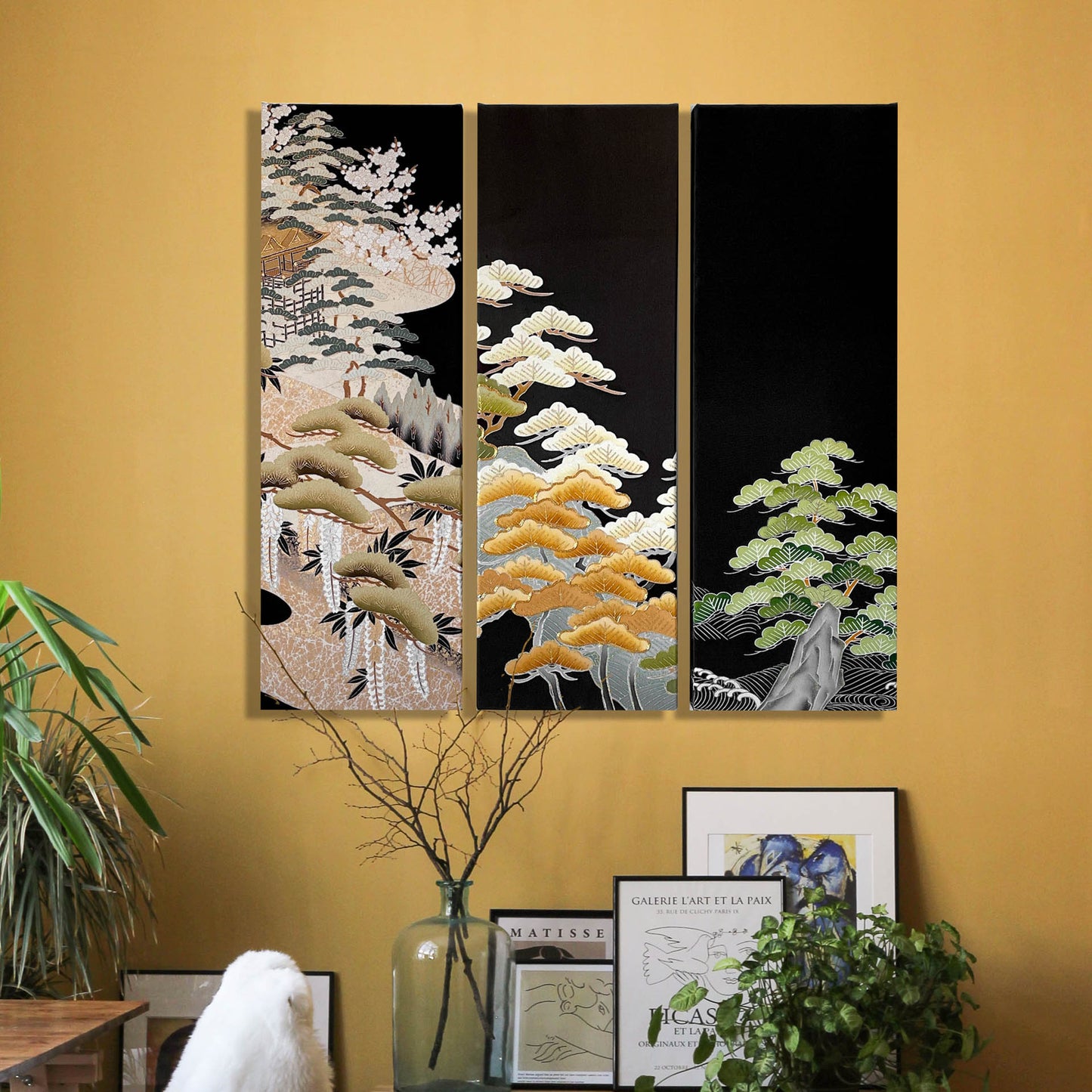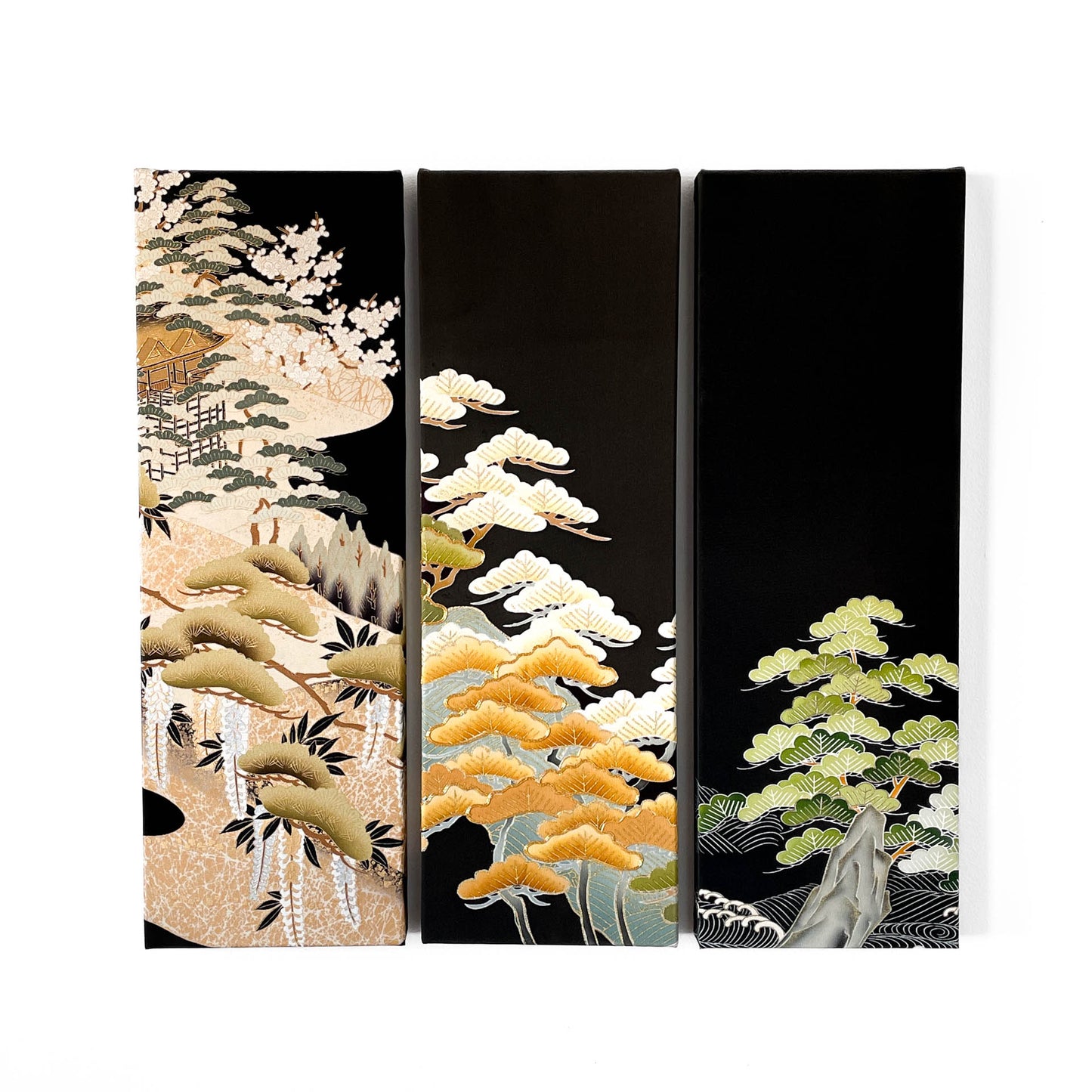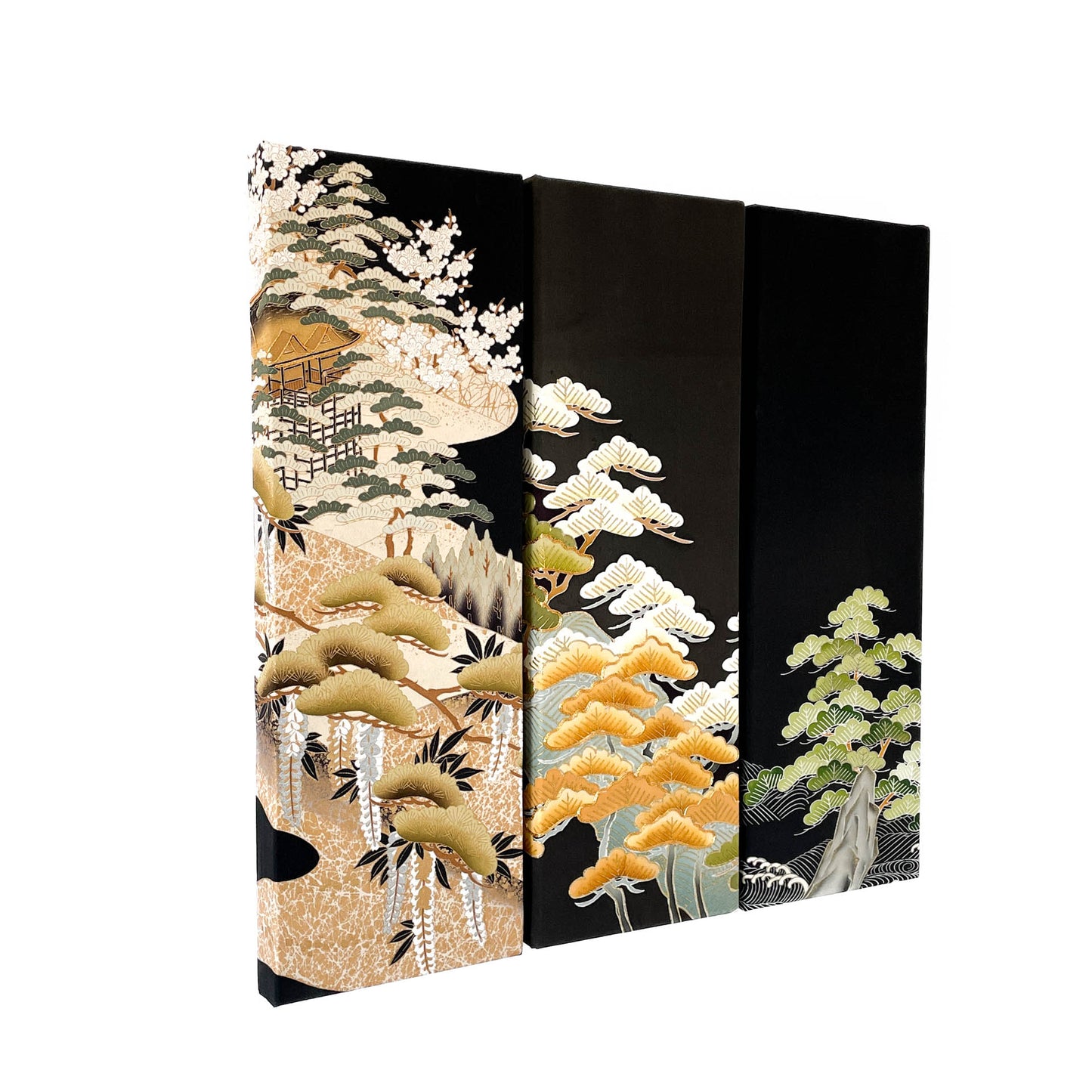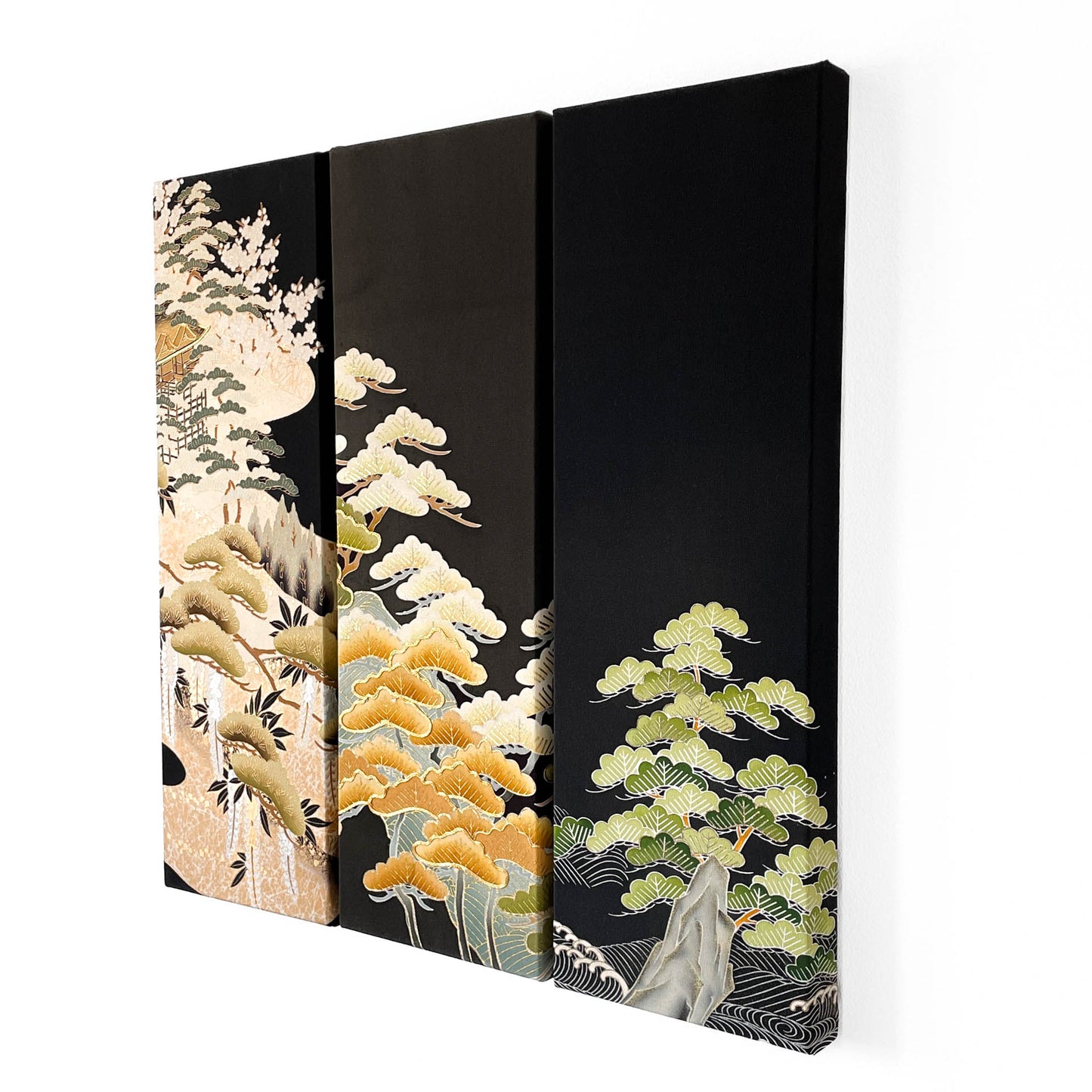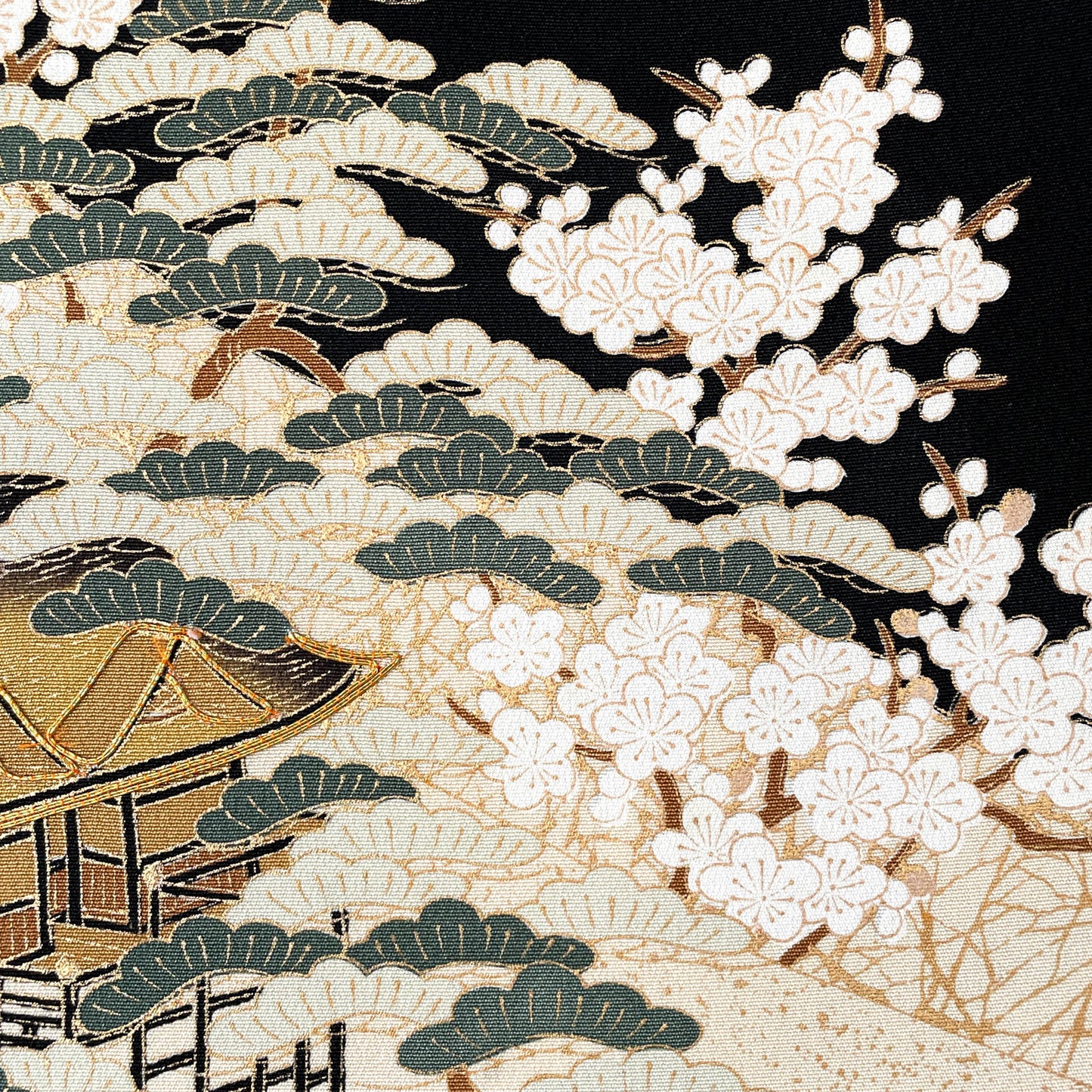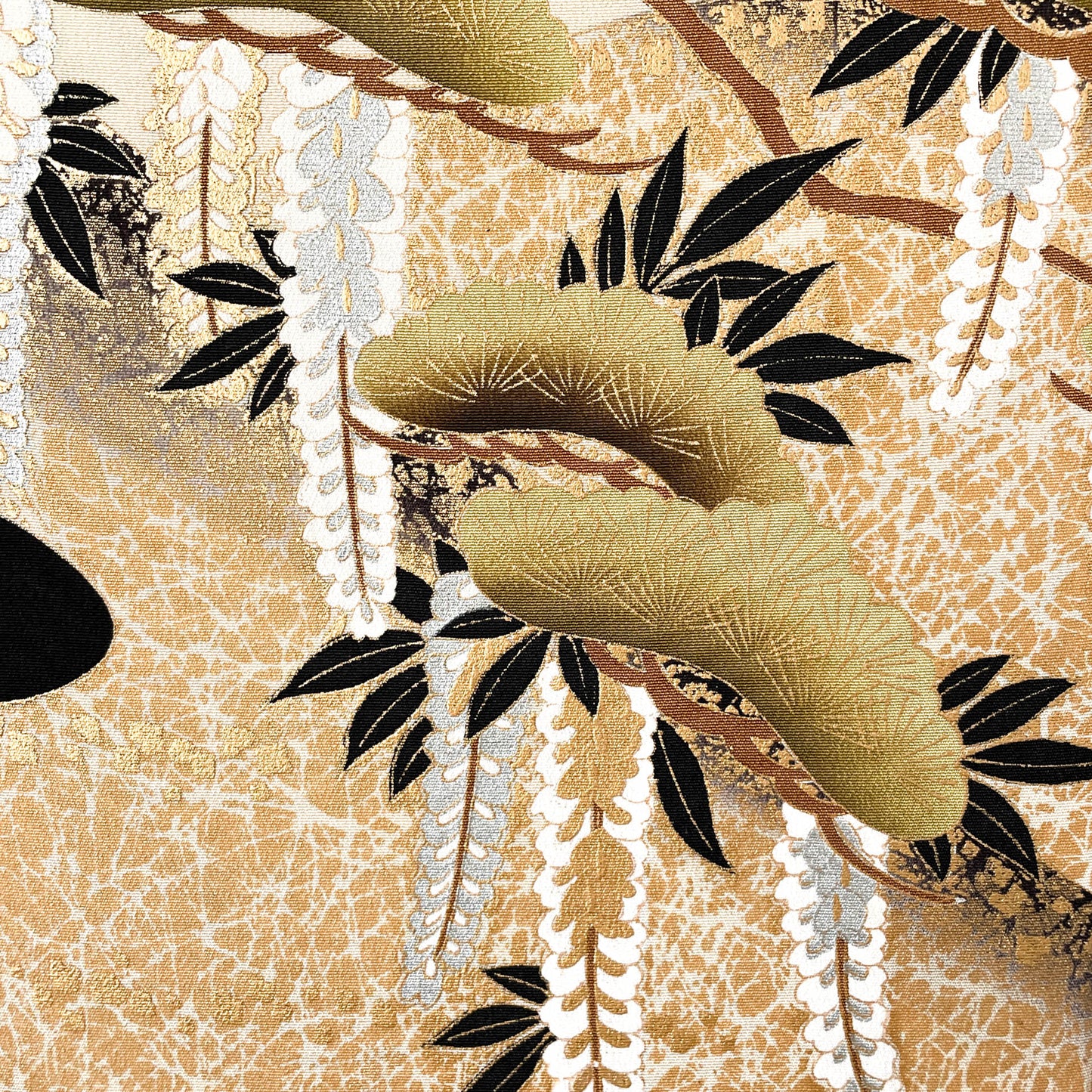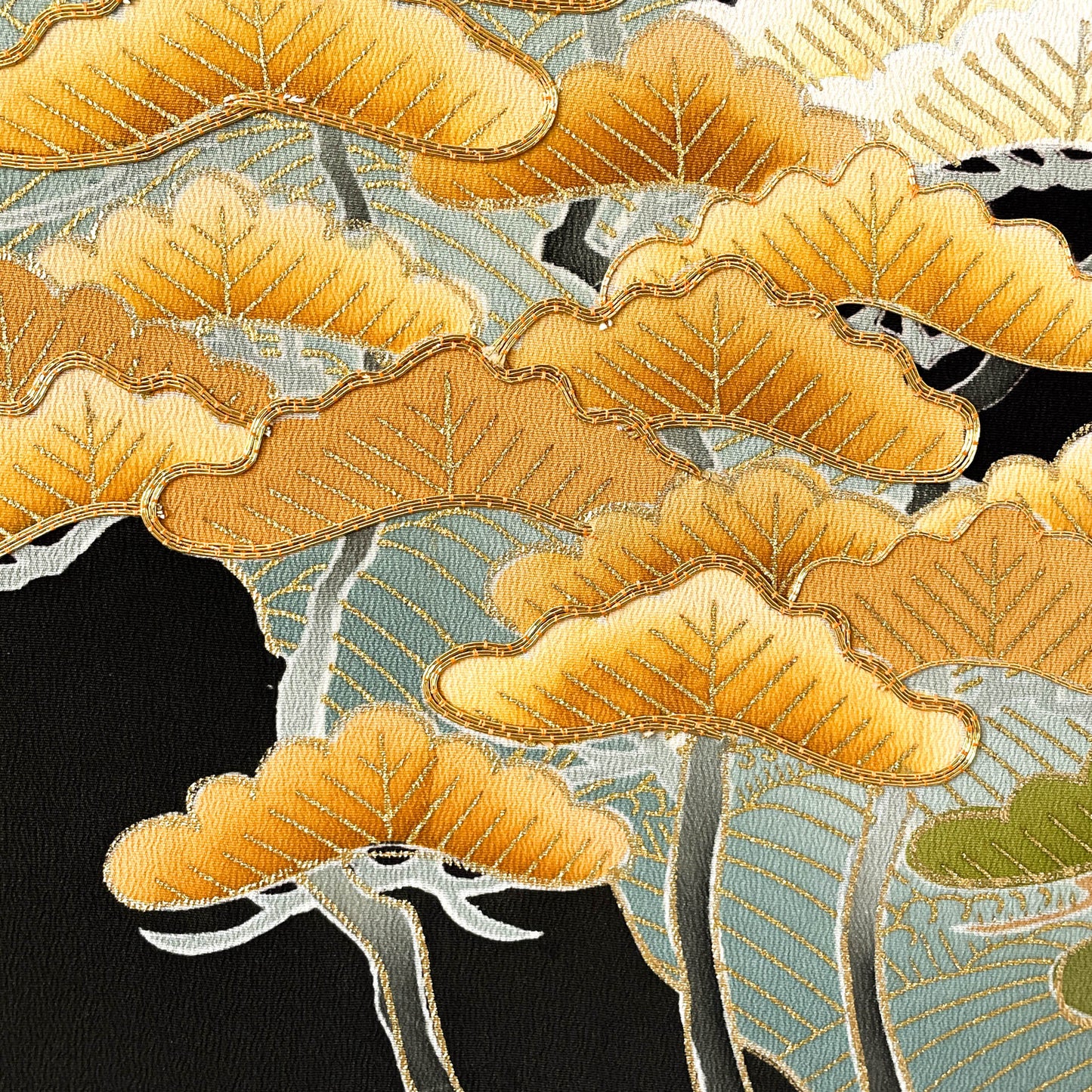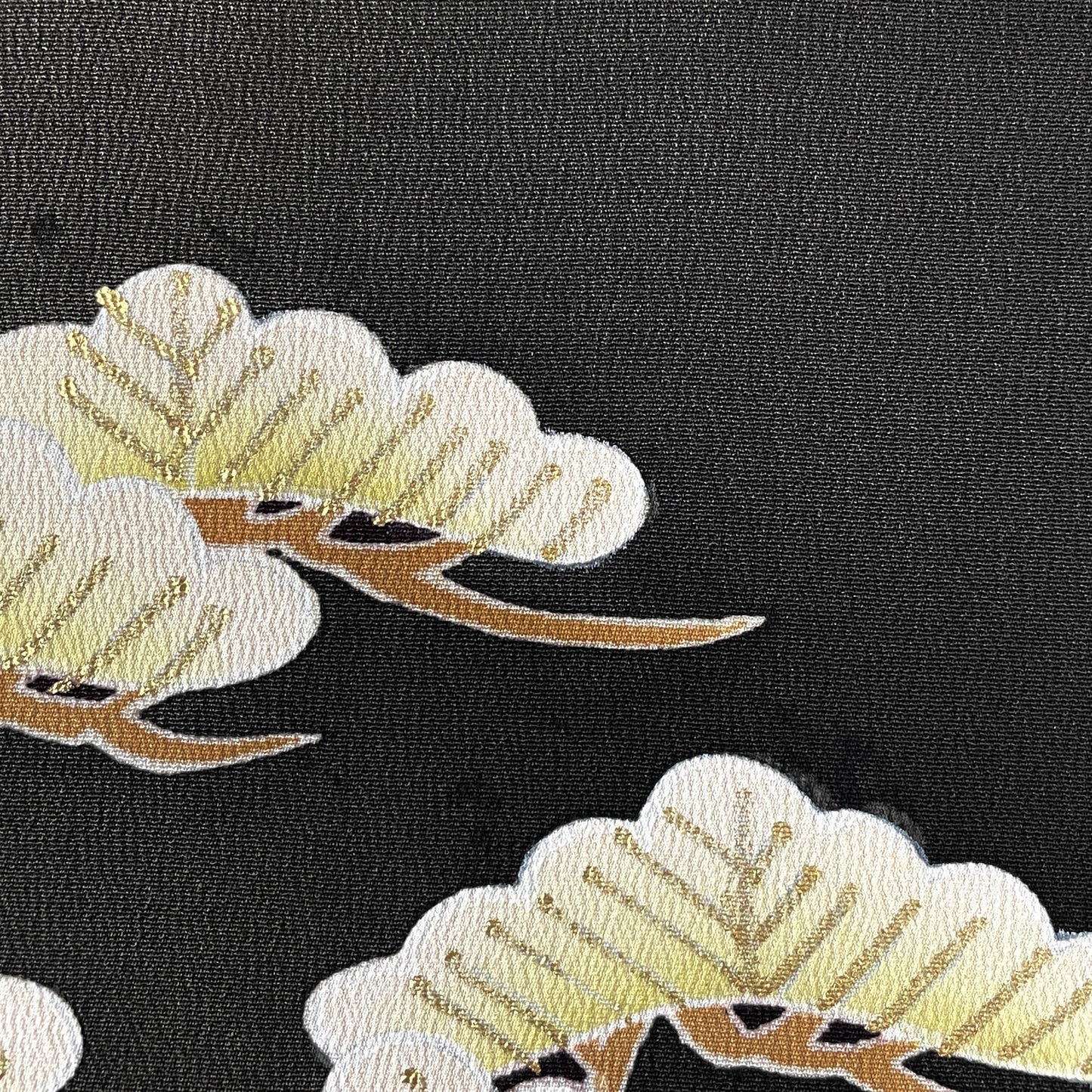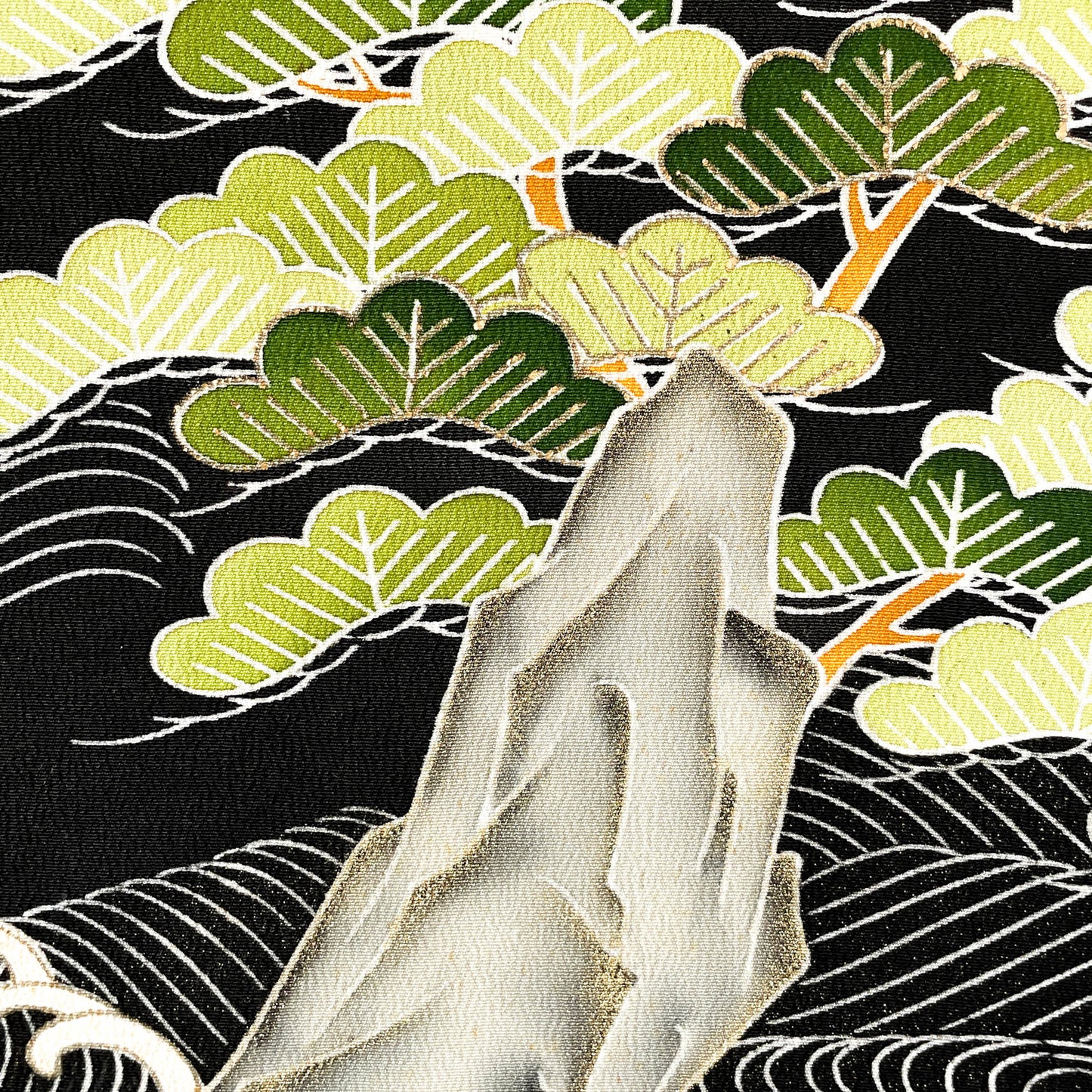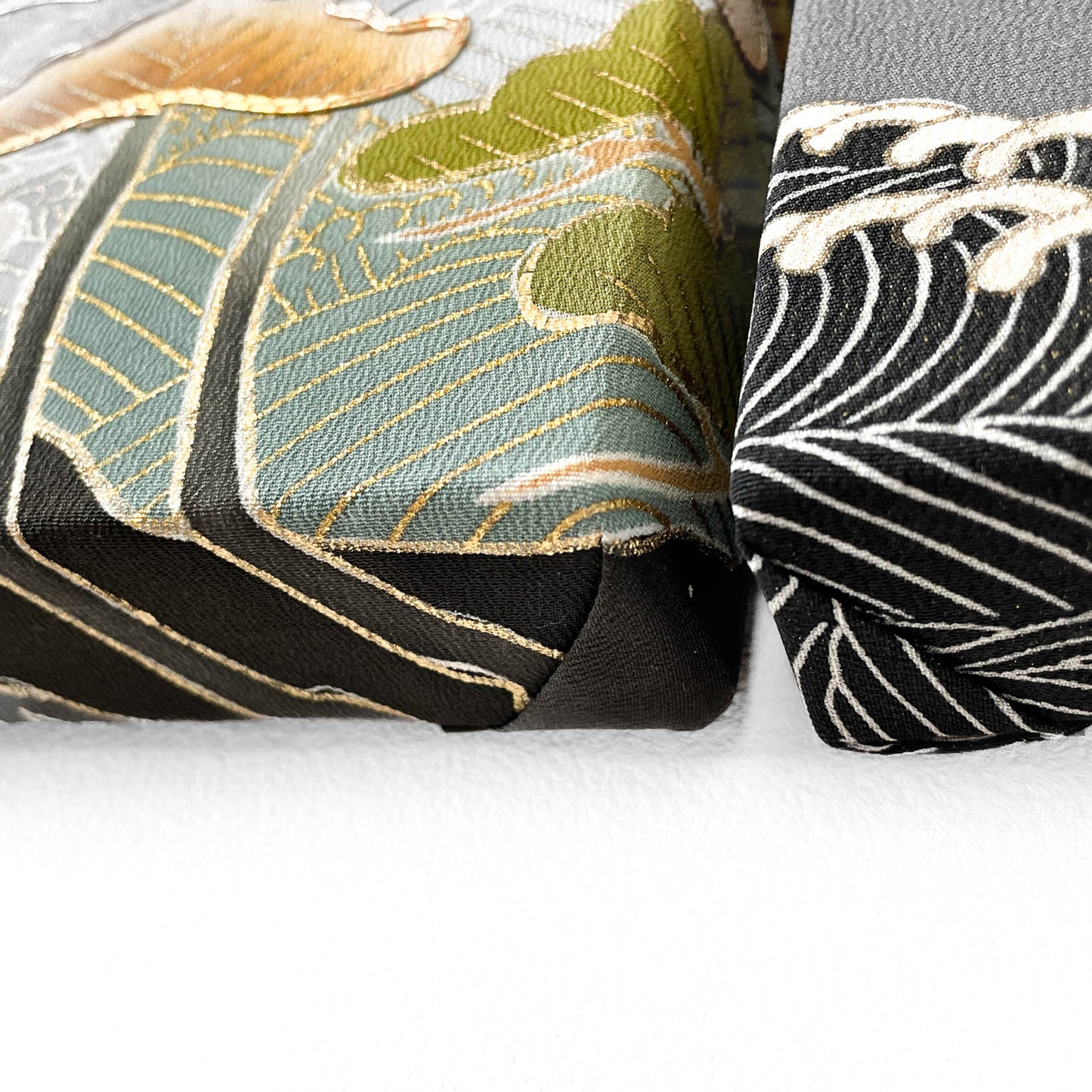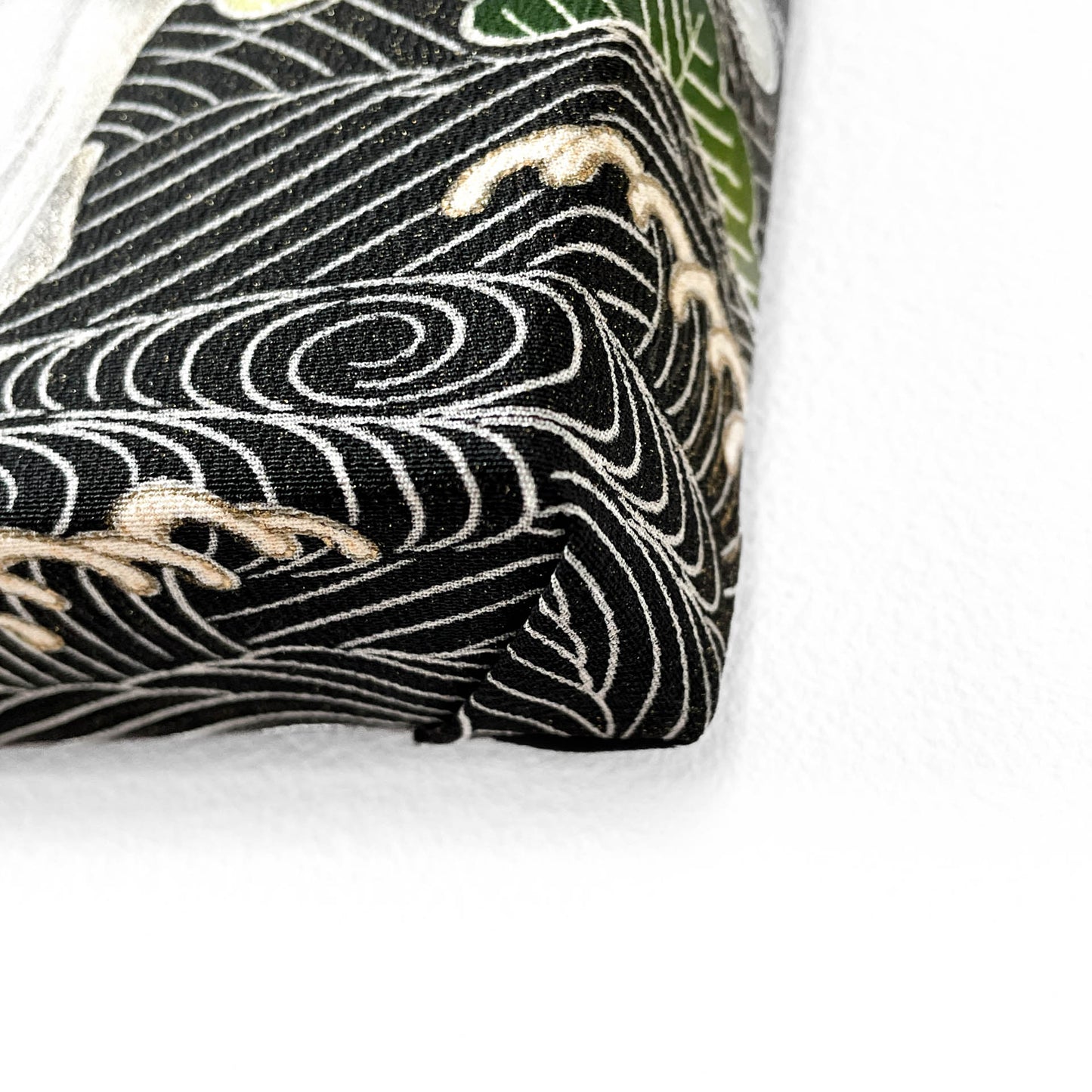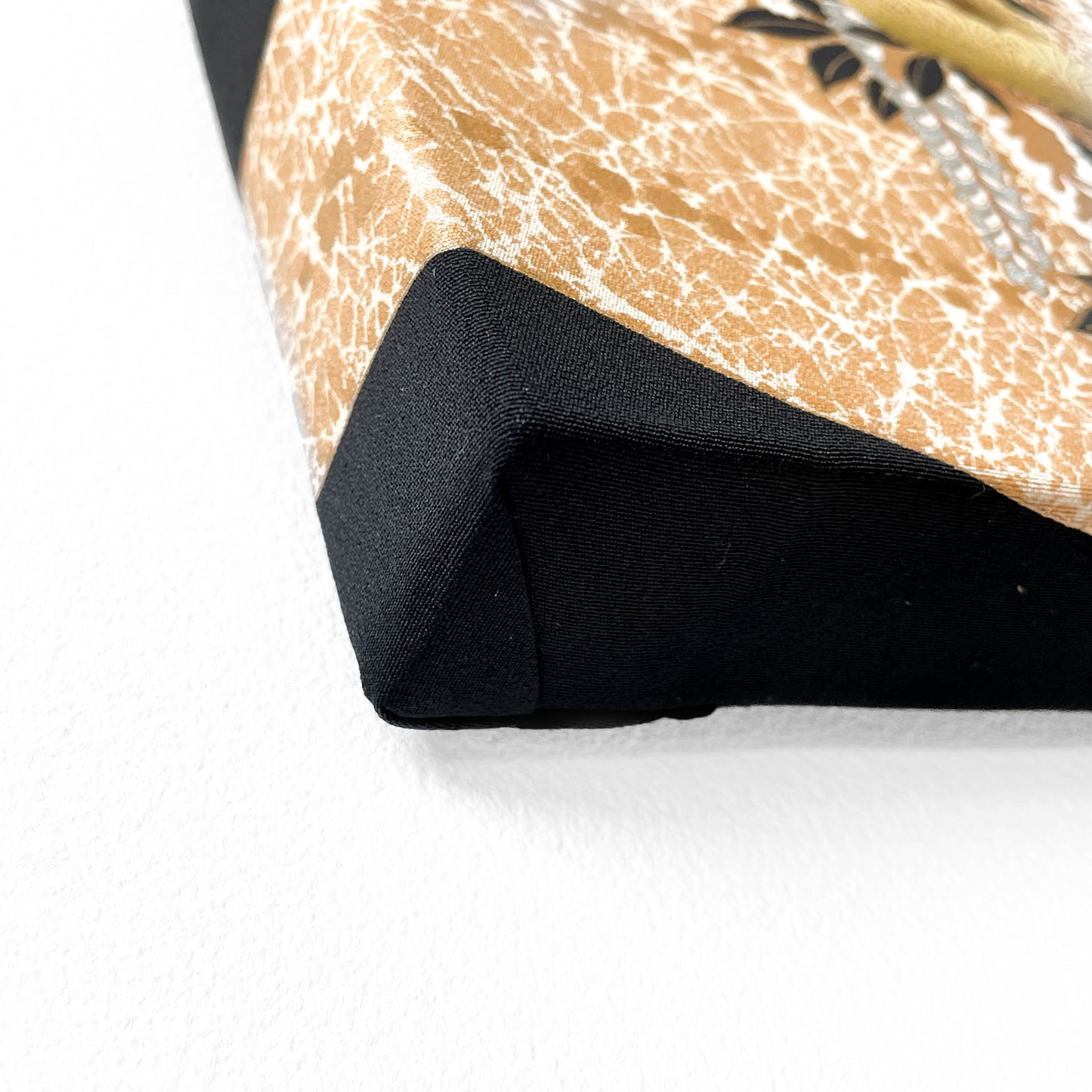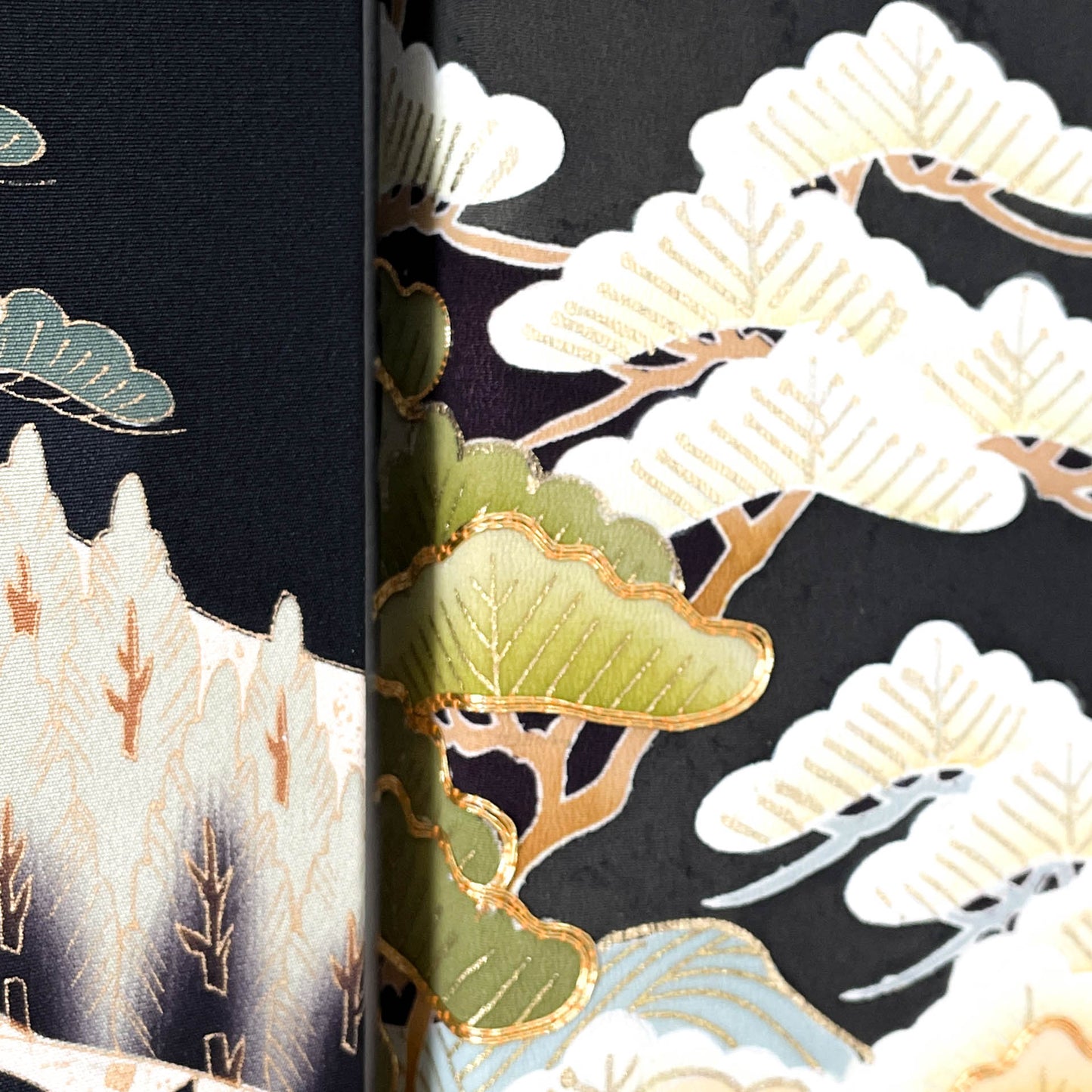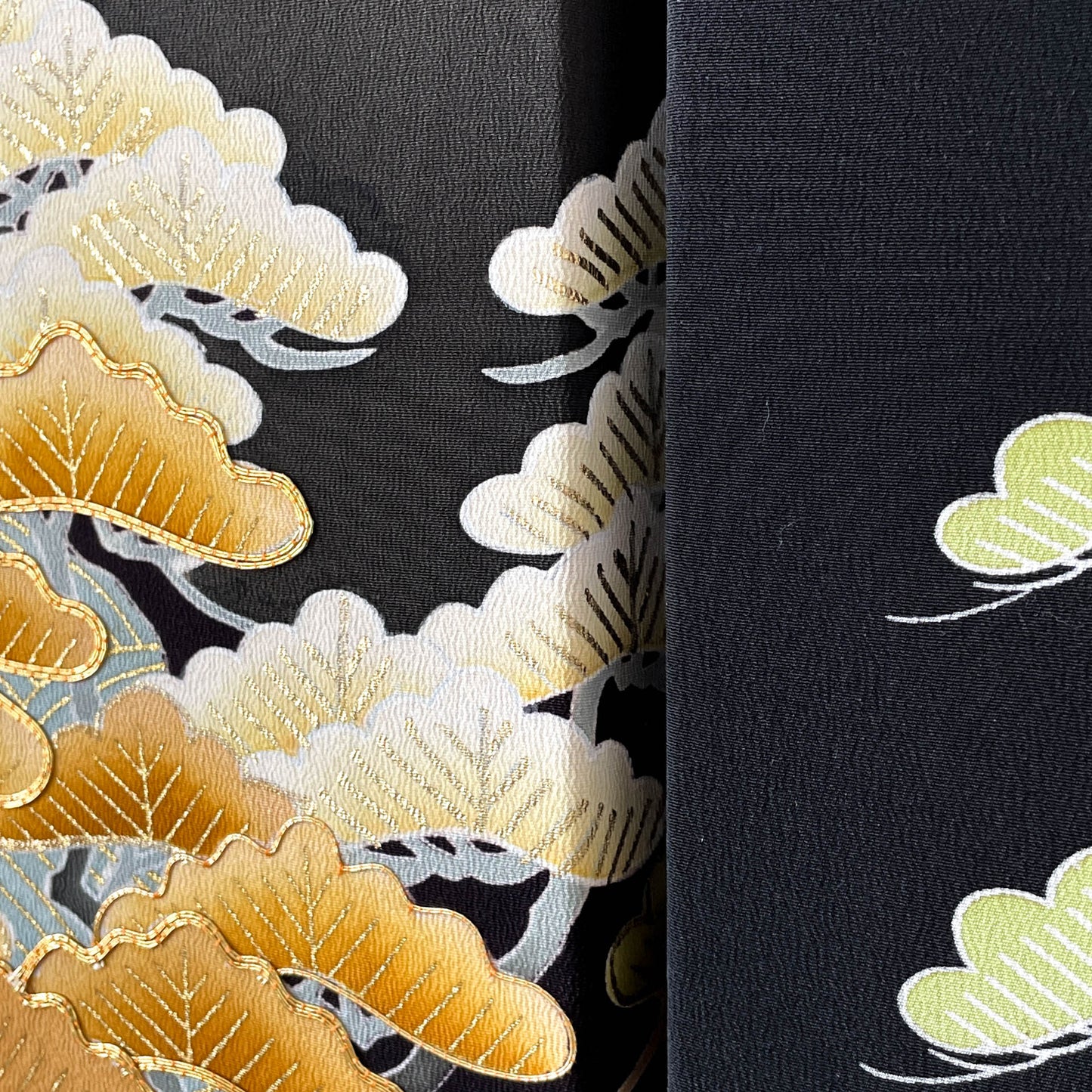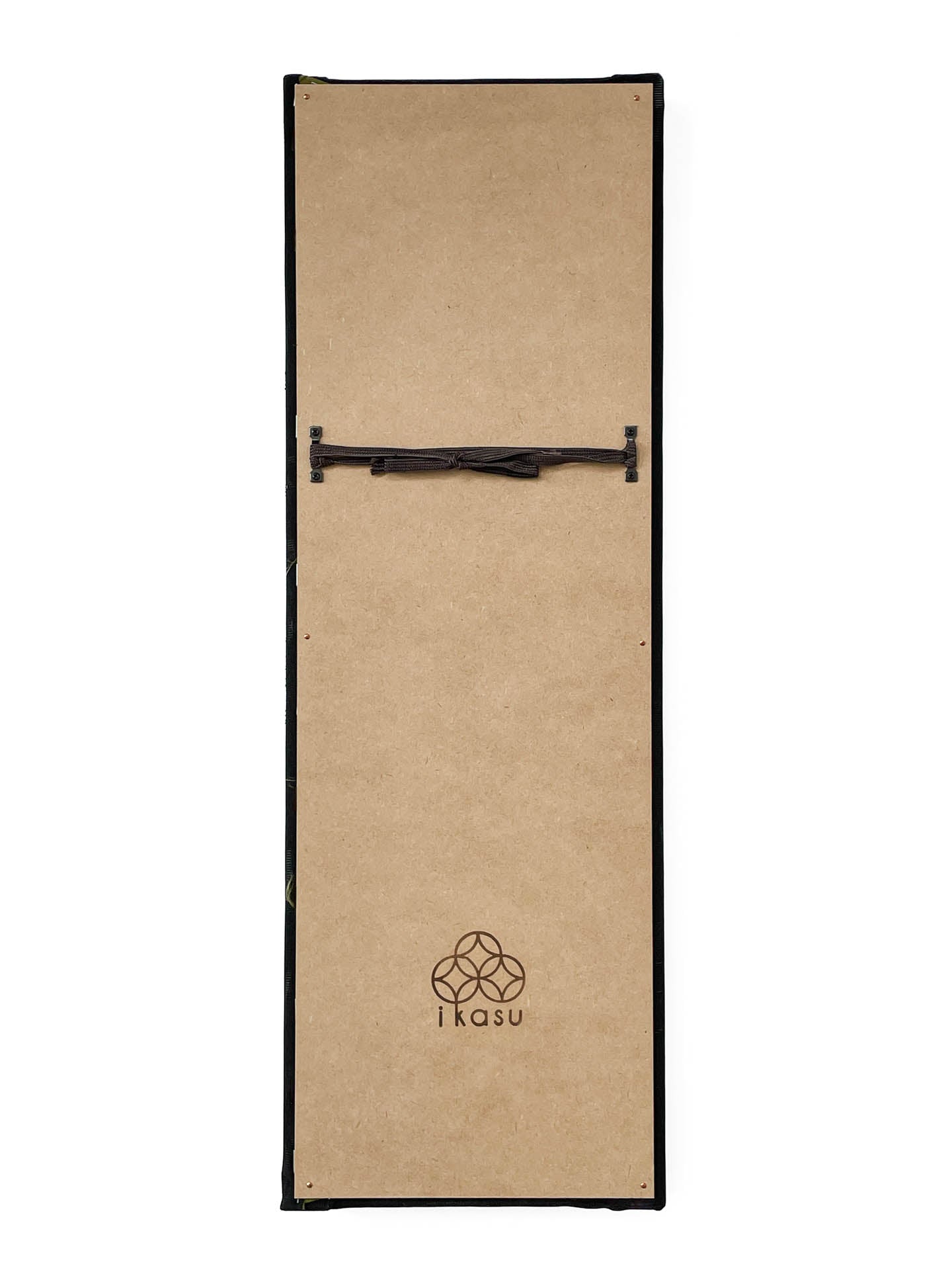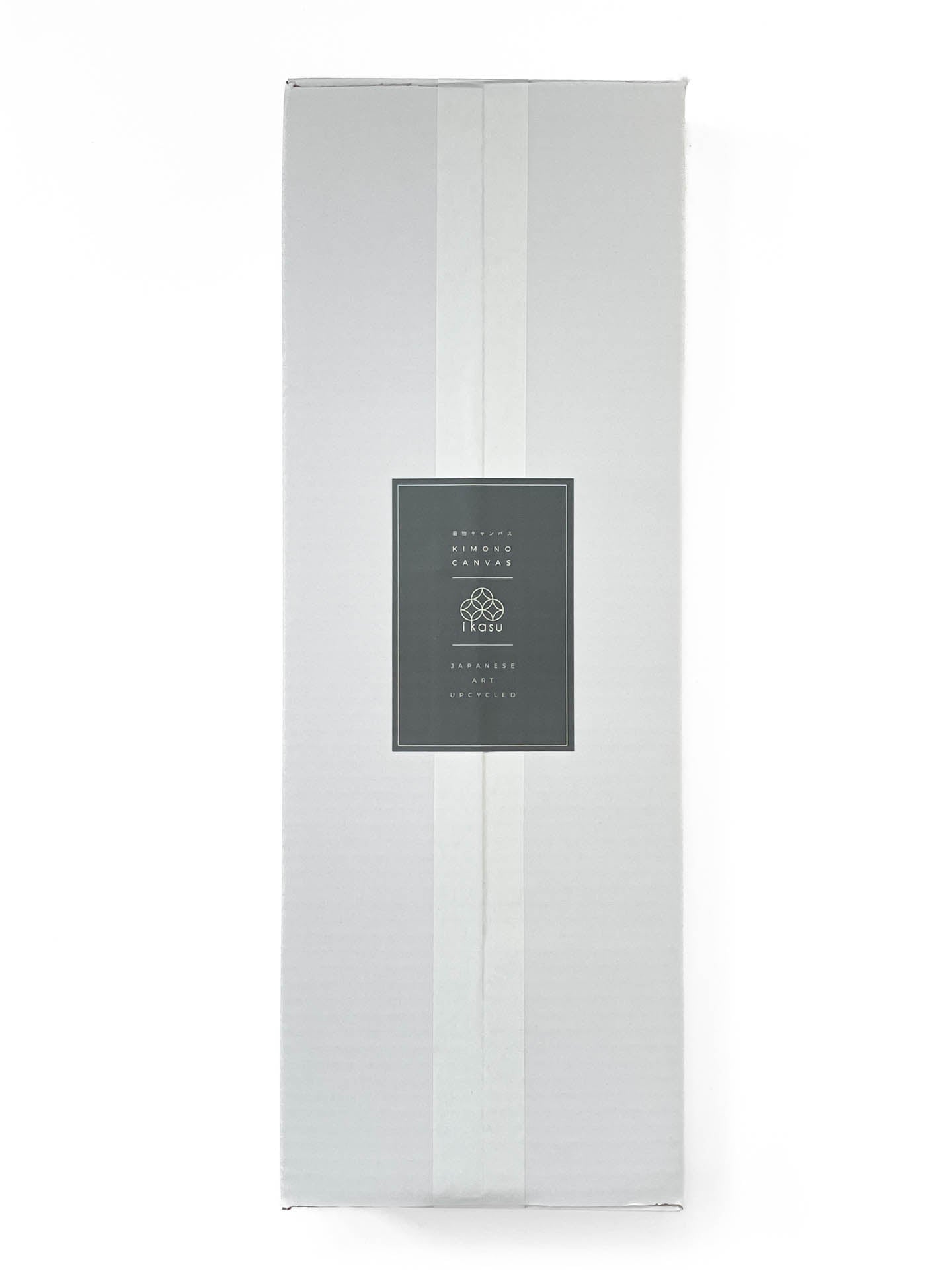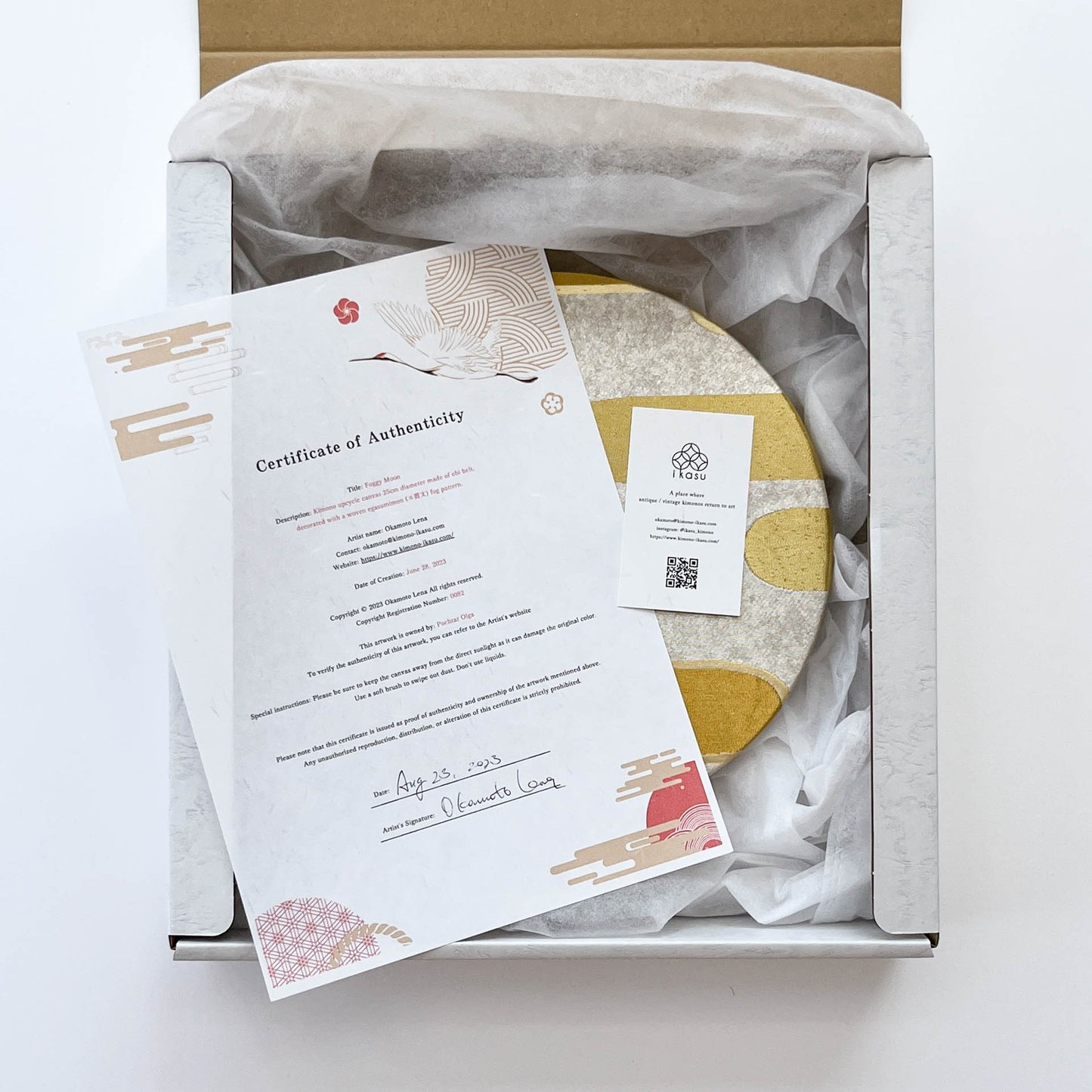Pines Through Seasons
Pines Through Seasons
Det gick inte att ladda hämtningstillgänglighet
Size
approx. 60cm x 20cm x 4cm (3 items)
Materials
silk (outside-layer) , wooden frame, cotton linen canvas (under-layer)
About this canvas
The pine tree pattern is elegantly highlighted with hand-dyed gold accents and "kinkoma" embroidery, a traditional Japanese embroidery technique.
Kinkoma embroidery involves winding thick threads or gold threads around a wooden piece, a kind of thread winder. Subsequently, these threads are meticulously arranged along the underpainting and secured using a binding thread. This technique imparts a three-dimensional quality to the artwork and enhances the delicate intricacies of the pattern, lending a luxurious touch to the piece.
Period / Story
The kimonos featured in this canvas set were created and used during the late Showa period, which spans from the 1950s to the 1980s.
Explanation and meaning of pattern and colors
The canvas features the Kasamatsu pattern, which depicts the Japanese umbrella pine tree spreading over white waves. It appears as if the pine tree is robustly growing on the cliffs by the sea.
The name "Kasamatsu" is derived from the way the pine tree's leaves and branches extend horizontally, resembling the shape of a hat.
In East Asia, the pine tree is revered as a symbol of longevity due to its vibrant green leaves, even during the winter season.
In Japan, it's often referred to as the "evergreen tree" because its leaves remain green throughout the year, making it a symbol of good fortune that has been cherished for a long time.
The combination of the pine tree with the plum tree (which blooms in winter) and the bamboo tree (which remains green in winter), known as "Shochikubai" in Japanese, is highly celebrated.
The kadomatsu, a traditional decoration featuring pine, bamboo, and plum branches, is placed at the entrance of homes during the New Year to symbolize the welcoming of the gods.
Characteristics of the fabric
The left canvas is adorned with gold embroidery, featuring intricate details on the roof of Kiyomizu-dera Temple, gold accents on the Kasamatsu pine trees, and the application of gold leaf on the wisteria, among other splendid gold embroidery throughout the pattern.
The center canvas, on the other hand, is embellished with hand-dyed gold and kinkoma embroidery, with pine tree patterns serving as accentuations.
Kin-koma embroidery is a traditional technique where thick threads or gold threads that are too thick to be threaded through a needle are wound around a wooden piece, similar to a thread winder. These wound threads are then applied along the underpainting and secured in place with a binding thread.
The use of gold threads in this method adds a three-dimensional dimension to the artwork, enhancing the intricate and delicate nuances of the pattern and lending a touch of glamour to the piece.
Decoration Advice
Canvas can be displayed on a table, wall, etc. Hanging on a wall requires hooks, tacks or nails. It can also be displayed propped up on an easel. Ideal for a room makeover, housewarming gift, present, or souvenir for a loved one.
Precaution
All the works are made from real kimonos, antiques and vintages. For this reason, the fabric may have traces of long-term use and minor fabric damages. In case there are any scratches or stains, we always add a photo of the area on the item page, so please check before purchasing. Regarding precaution, cancellation and refund policy, please refer to the refund policy in the footer section of the site for information.
The last pictures in the gallery are the pictures of the reverse side of the canvas, the attachments and the package.
Dela med sig
